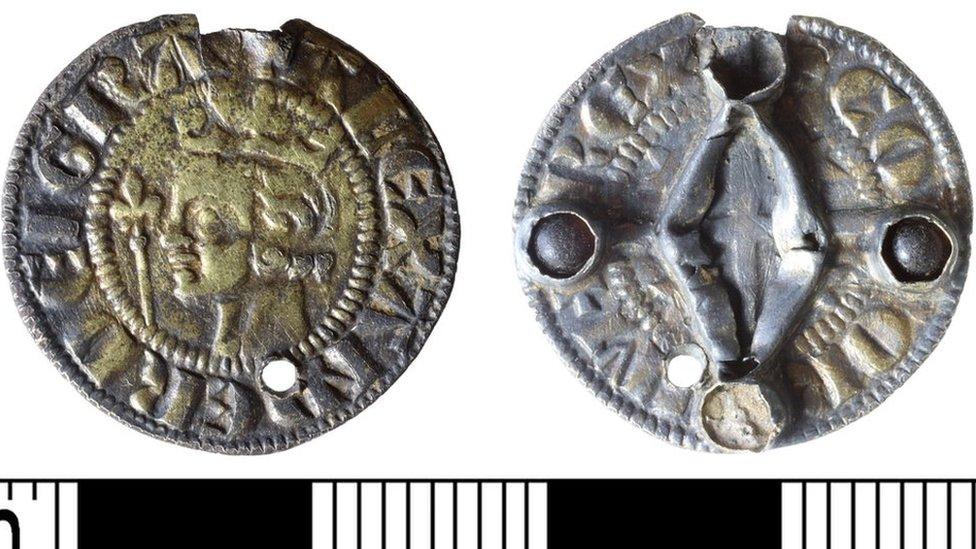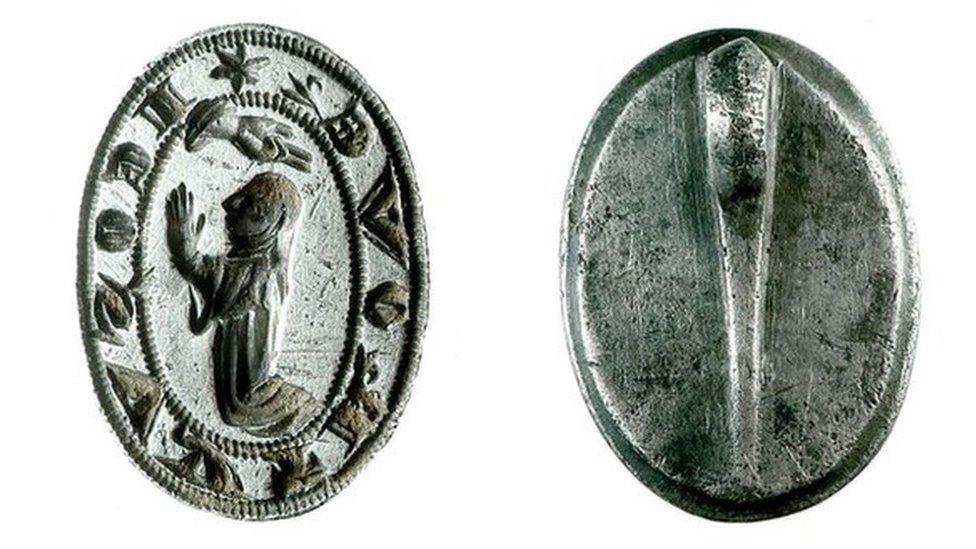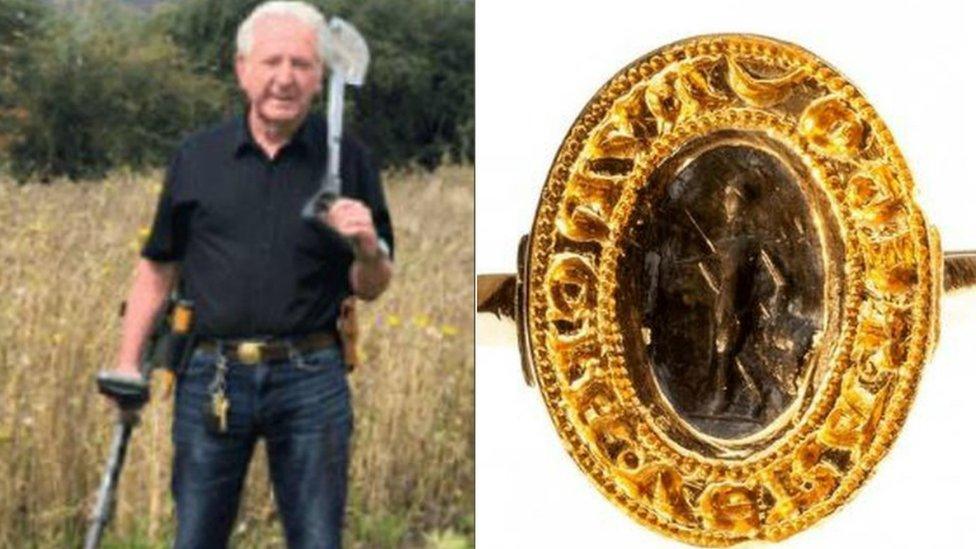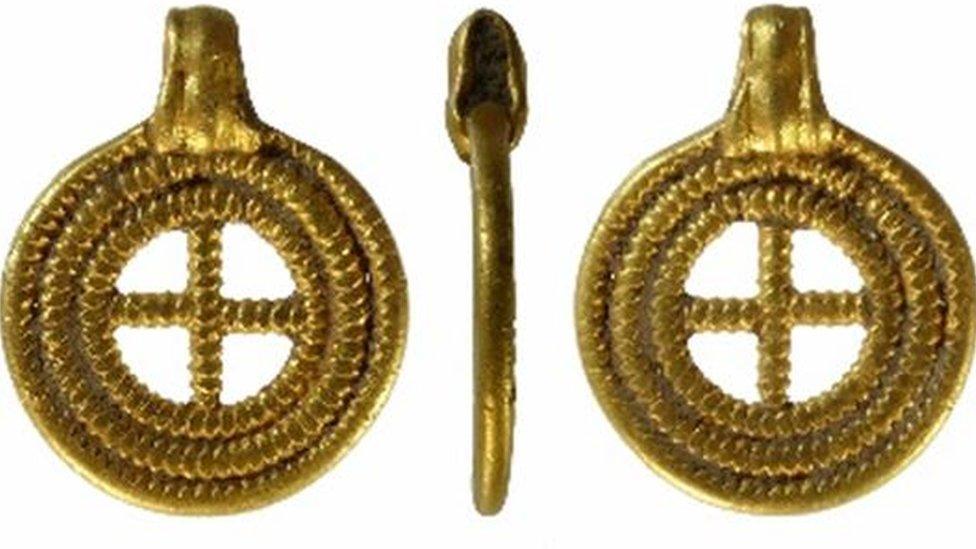Scottish medieval coin 'lost' and found in Norfolk declared treasure
- Published

Alexander III reigned 1249-86 and was from the House of Dunkeld - the same Scottish royal family that included Macbeth, who reigned 1040-57
A Scottish medieval coin turned into jewellery has been declared treasure after being "lost" and then found hundreds of miles away in England.
The silver coin featuring the head of Alexander III of Scotland dates from 1280-6 and was discovered in Long Stratton, Norfolk in August 2019.
The penny was worn as either a pendant or brooch by someone who was religious, coin expert Dr Adrian Marsden said.
He added that the coin "had travelled some way".
Dr Marsden, a numismatist at Norfolk Historic Environment Service, said it "must have been eventually lost" in the county until it was rediscovered last year by a metal detectorist in a field.
The exact location of the find is not being disclosed.
The historian said the item would have been worn as a religious symbol as the side with the cross was the one intended for display, rather than the head side of the coin.
"There is also settings for gems [which were no longer present] which represent the five wounds of Christ, so it is symbolic and adds to the religious dimension," he said.

What is treasure?
Under the Treasure Act 1996, external, finders of potential treasure in England, Wales and Northern Ireland are legally obliged to notify their local coroner
An inquest then determines whether the finds constitute treasure
The act contains a number of definitions of "treasure", including prehistoric objects, coins that contain gold or silver and are at least 300 years old, or more recent valuable objects that have been deliberately hidden
If the find is declared treasure, the finder must offer it for sale to a museum at a price set by the British Museum's Treasure Valuation Committee
A reward is then offered to the finders and other relevant parties

Dr Marsden believed the owner "would have been relatively well-off" as the penny was the equivalent of half a day's wage at the time.
"It would have been a bit of a luxury and the owner would have some social status," he said.
"The coin was probably equivalent to £20 in today's money."
The Norwich Castle Museum hopes to acquire the coin and add it to a collection of similar items.
It was declared treasure at an inquest at Norfolk Coroner's Court earlier this month.

Find BBC News: East of England on Facebook, external, Instagram, external and Twitter, external. If you have a story suggestion, please email eastofenglandnews@bbc.co.uk, external
- Published18 January 2020

- Published24 August 2019

- Published17 March 2019
